Arts & Entertainment
Golden Globes winners include surprises, diversity, and LGBTQ wins


The Hollywood Foreign Press Association’s 77th annual Golden Globe Awards are now a matter of history, and in an evening of surprises and upsets, several of the most noteworthy moments reflected the growing significance of LGBTQ voices in the content created by the film and television industry.
Going into the presentation Sunday night, the slate of nominations included nods for several LGBTQ-inclusive films, actors and characters.
In performance categories, several openly LGBTQ performers were nominated, including out actors Billy Porter and Ben Platt for Best Performance by an Actor in a Television Series in the Drama and Comedy categories, respectively. Porter lost to actor Brian Cox, for HBO’s “Succession,” while Platt’s category was won by Muslim-American writer and actor Ramy Youssef, for Hulu’s “Ramy.”
Out Irish actor Andrew Scott had received a nod as Best Supporting Actor in a Television Series (Comedy) for his role as “Hot Priest” in “Fleabag,” an award which went to Russell Crowe for his performance as Roger Ailes in Showtime’s “The Loudest Voice.”
For Best Performance by an Actress in a Motion Picture (Musical or Comedy), out actress Beanie Feldstein was nominated for her portrayal of a high school overachiever in the hilarious sleeper hit, “Booksmart,” but the award went instead to rapper-turned-actress Awkwafina, who made history by becoming the first Asian-American performer to win a Golden Globe in any lead actress film category; she took the prize for “The Farewell,” a film created by Asian-American female filmmaker Lulu Wang.
The performance nominations also included LGBTQ allies playing queer characters:
Taran Egerton, nominated for Best Performance by an Actor in a Motion Picture (Musical or Comedy), scored with a win for playing Elton John in “Rocketman.” Antonio Banderas had received a nod as Best Performance by an Actor in a Motion Picture (Drama) for his role in Pedro Almodóvar’s “Pain and Glory,” but the award was taken home by Joaquin Phoenix for his electrifying turn as the title character in “The Joker.”
In actress categories, Margot Robbie had been nominated for Best Performance by an Actress in a Supporting Role in any Motion Picture for “Bombshell,” and Jodie Comer for Best Performance by an Actress In A Television Series (Drama) in “Killing Eve.” Those categories were won by Laura Dern (for “Marriage Story”) and Olivia Colman (for “The Crown”), respectively.
In one of the evening’s surprises, the award for Best Performance by an Actress in a Motion Picture (Drama) went to Renée Zellweger for her performance as Judy Garland in the biopic, “Judy.” Though Zellweger is straight (as was Garland) the film is notable for its dramatization of an episode in the life of an undisputed LGBTQ icon.
Several films and television shows with queer-themed content were also nominated going into the evening.
Netflix’s “The Politician” had picked up a nod as Best Comedy Series, but the award ended up being given to the Amazon juggernaut, “Fleabag” – a series which also includes LGBTQ content, and which also picked up the award for Best Actress In A Television Series (Comedy) for its creator and star, Phoebe Waller-Bridge.
“Killing Eve” was also nominated for Best Television Series (Drama). That award went to “Succession.”
In film categories, “Rocketman” received a nod as Best Motion Picture (Comedy or Musical), but lost to Quentin Tarantino’s “Once Upon a Time… In Hollywood,” which also picked up a Best Supporting Actor win for Brad Pitt. The Best Foreign Language Film nominations had included two queer films, the period lesbian romance “Portrait of a Lady on Fire” and Almodóvar’s “Pain and Glory.” That award went to South Korean filmmaker Bong Joon Ho’s widely-acclaimed thriller, “Parasite.”
“Rocketman,” the musical fantasy biopic of singer Elton John, nevertheless managed to pull off one of the evening’s biggest LGBTQ-friendly moments, when it snagged a win for John himself in the category of Best Original Song (Motion Picture) for “I’m Gonna Love Me Again,” who claimed the prize alongside longtime collaborator Bernie Taupin.
“It’s the first time I won an award with him. Ever,” said the LGBTQ legend while accepting the award. “We never won a Grammy, we never did anything together except for this and I’m so happy, thank you very much.”
Taupin, whose early friendship with John is documented in the film, added, “This isn’t just a song we wrote for a movie; This is a song we wrote for a movie that deals with our relationship.”
The ceremony’s queerest moment was also arguably the most emotionally potent moment of the entire evening; in presenting the Carol Burnett Award to Ellen DeGeneres for her contributions to television, out actress and comedian Kate McKinnon paid tribute to the queer icon by giving her a personal thank you.
“If I hadn’t seen her on TV, I would have thought, ‘I could never be on TV. They don’t let LGBT people on TV,’” the “Saturday Night Live” star said. “And more than that, I would have gone on thinking that I was an alien, and that I maybe didn’t even have a right to be here. So, thank you, Ellen, for giving me a shot. A shot at a good life.”
For a complete list of the evening’s nominees and winners, click here.

More than a dozen LGBTQ athletes won medals at the Milan Cortina Winter Olympics that ended on Sunday.
Cayla Barnes, Hilary Knight, and Alex Carpenter are LGBTQ members of the U.S. women’s hockey team that won a gold medal after they defeated Canada in overtime. Knight the day before the Feb. 19 match proposed to her girlfriend, Brittany Bowe, an Olympic speed skater.
French ice dancer Guillaume Cizeron, who is gay, and his partner Laurence Fournier Beaudry won gold. American alpine skier Breezy Johnson, who is bisexual, won gold in the women’s downhill. Amber Glenn, who identifies as bisexual and pansexual, was part of the American figure skating team that won gold in the team event.
Swiss freestyle skier Mathilde Gremaud, who is in a relationship with Vali Höll, an Austrian mountain biker, won gold in women’s freeski slopestyle.
Bruce Mouat, who is the captain of the British curling team that won a silver medal, is gay. Six members of the Canadian women’s hockey team — Emily Clark, Erin Ambrose, Emerance Maschmeyer, Brianne Jenner, Laura Stacey, and Marie-Philip Poulin — that won silver are LGBTQ.
Swedish freestyle skier Sandra Naeslund, who is a lesbian, won a bronze medal in ski cross.
Belgian speed skater Tineke den Dulk, who is bisexual, was part of her country’s mixed 2000-meter relay that won bronze. Canadian ice dancer Paul Poirier, who is gay, and his partner, Piper Gilles, won bronze.
Laura Zimmermann, who is queer, is a member of the Swiss women’s hockey team that won bronze when they defeated Sweden.
Outsports.com notes all of the LGBTQ Olympians who competed at the games and who medaled.
Theater
José Zayas brings ‘The House of Bernarda Alba’ to GALA Hispanic Theatre
Gay Spanish playwright Federico García Lorca wrote masterpiece before 1936 execution

‘The House of Bernarda Alba’
Through March 1
GALA Hispanic Theatre
3333 14th St., N.W.
$27-$52
Galatheatre.org
In Federico García Lorca’s “The House of Bernarda Alba,” now at GALA Hispanic Theatre in Columbia Heights, an impossibly oppressive domestic situation serves, in short, as an allegory for the repressive, patriarchal, and fascist atmosphere of 1930s Spain
The gay playwright completed his final and arguably best work in 1936, just months before he was executed by a right-wing firing squad. “Bernarda Alba” is set in the same year, sometime during a hot summer in rural Andalusia, the heart of “España profunda” (the deep Spain), where traditions are deeply rooted and mores seldom challenged.
At Bernarda’s house, the atmosphere, already stifling, is about to get worse.
On the day of her second husband’s funeral, Bernarda Alba (superbly played by Luz Nicolás), a sixtyish woman accustomed to calling the shots, gathers her five unmarried daughters (ages ranging from 20 to 39) and matter-of-factly explain what’s to happen next.
She says, “Through the eight years of mourning not a breeze shall enter this house. Consider the doors and windows as sealed with bricks. That’s how it was in my father’s house and my grandfather’s. Meanwhile, you can embroider your trousseaux.”
It’s not an altogether sunny plan. While Angustias (María del Mar Rodríguez), Bernarda’s daughter from her first marriage and heiress to a fortune, is betrothed to a much younger catch, Pepe el Romano, who never appears on stage, the remaining four stand little chance of finding suitable matches. Not only are they dowry-less, but no men, eligible or otherwise, are admitted into their mother’s house.
Lorca is a literary hero known for his mastery of both lyrical poetry and visceral drama; still, “Bernarda Alba’s” plotline might suit a telenovela. Despotic mother heads a house of adult daughters. Said daughters are churning with passions and jealousies. When sneaky Martirio (Giselle Gonzáles) steals the photo of Angustias’s fiancé all heck kicks off. Lots of infighting and high drama ensue. There’s even a batty grandmother (Alicia Kaplan) in the wings for bleak comic relief.
At GALA, the modern classic is lovingly staged by José Zayas. The New York-based out director has assembled a committed cast and creative team who’ve manifested an extraordinarily timely 90-minute production performed in Spanish with English subtitles easily ready seen on multiple screens.
In Lorca’s stage directions, he describes the set as an inner room in Bernarda’s house; it’s bright white with thick walls. At GALA, scenic designer Grisele Gonzáles continues the one-color theme with bright red walls and floor and closed doors. There are no props.
In the airless room, women sit on straight back chairs sewing. They think of men, still. Two are fixated on their oldest siter’s hunky betrothed. Only Magdelena (Anna Malavé), the one sister who truly mourns their dead father, has given up on marriage entirely.
The severity of the place is alleviated by men’s distant voices, Koki Lortkipanidze’s original music, movement (stir crazy sisters scratching walls), and even a precisely executed beatdown choreographed by Lorraine Ressegger-Slone.
In a short yet telling scene, Bernarda’s youngest daughter Adela (María Coral) proves she will serve as the rebellion to Bernarda’s dictatorship. Reluctant to mourn, Adela admires her reflection. She has traded her black togs for a seafoam green party dress. It’s a dreamily lit moment (compliments of lighting designer Hailey Laroe.)
But there’s no mistaking who’s in charge. Dressed in unflattering widow weeds, her face locked in a disapproving sneer, Bernarda rules with an iron fist; and despite ramrod posture, she uses a cane (though mostly as a weapon during one of her frequent rages.)
Bernarda’s countenance softens only when sharing a bit of gossip with Poncia, her longtime servant convincingly played by Evelyn Rosario Vega.
Nicolás has appeared in “Bernarda Alba” before, first as daughter Martirio in Madrid, and recently as the mother in an English language production at Carnegie Melon University in Pittsburgh. And now in D.C. where her Bernarda is dictatorial, prone to violence, and scarily pro-patriarchy.
Words and phrases echo throughout Lorca’s play, all likely to signal a tightening oppression: “mourning,” “my house,” “honor,” and finally “silence.”
As a queer artist sympathetic to left wing causes, Lorca knew of what he wrote. He understood the provinces, the dangers of tyranny, and the dimming of democracy. Early in Spain’s Civil War, Lorca was dragged to the the woods and murdered by Franco’s thugs. Presumably buried in a mass grave, his remains have never been found.
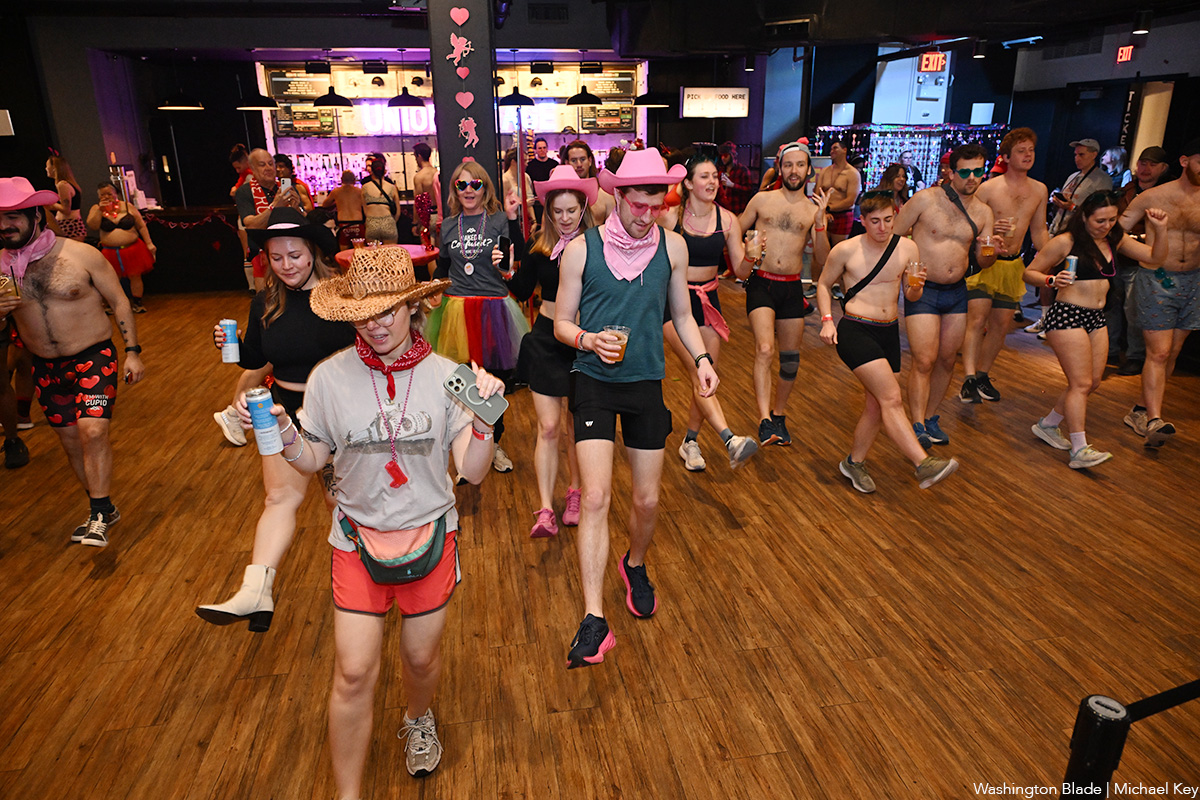
Cupid’s Undie Run, an annual fundraiser for neurofibromatosis (NF) research, was held at Union Stage and at The Wharf DC on Saturday, Feb. 21.
(Washington Blade photos by Michael Key)
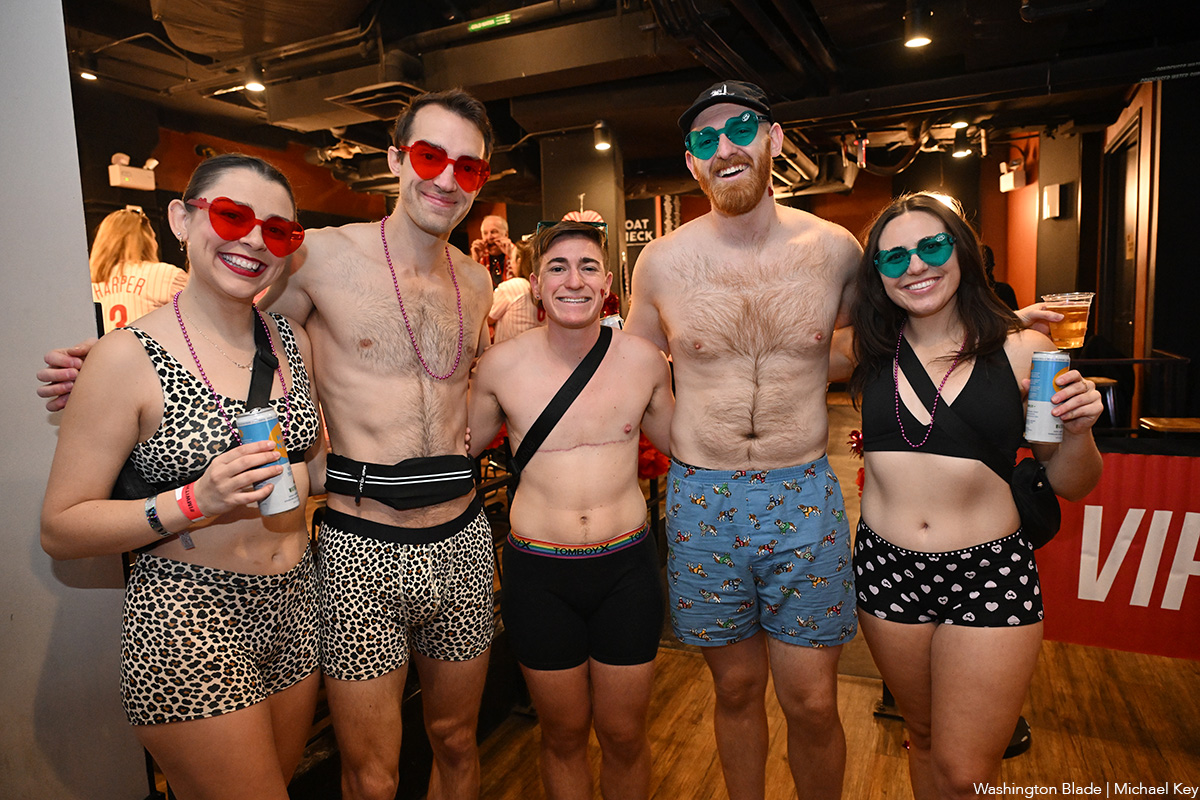
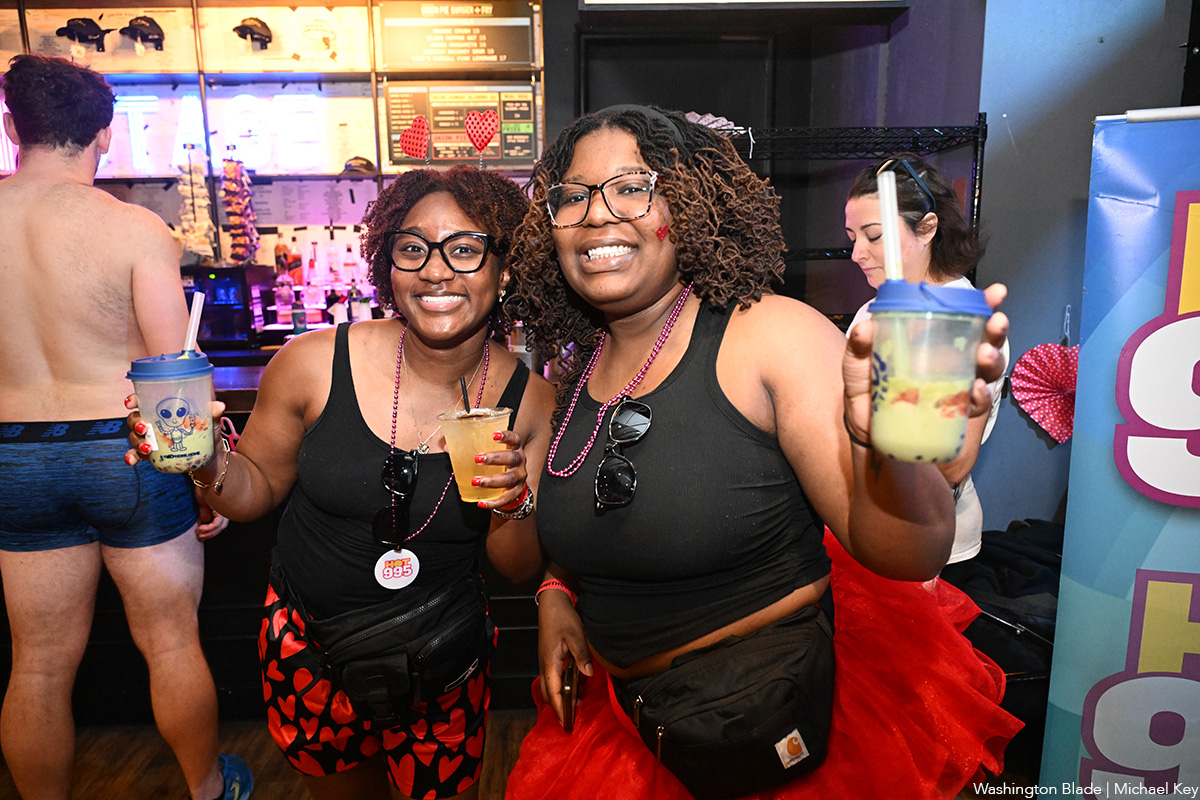
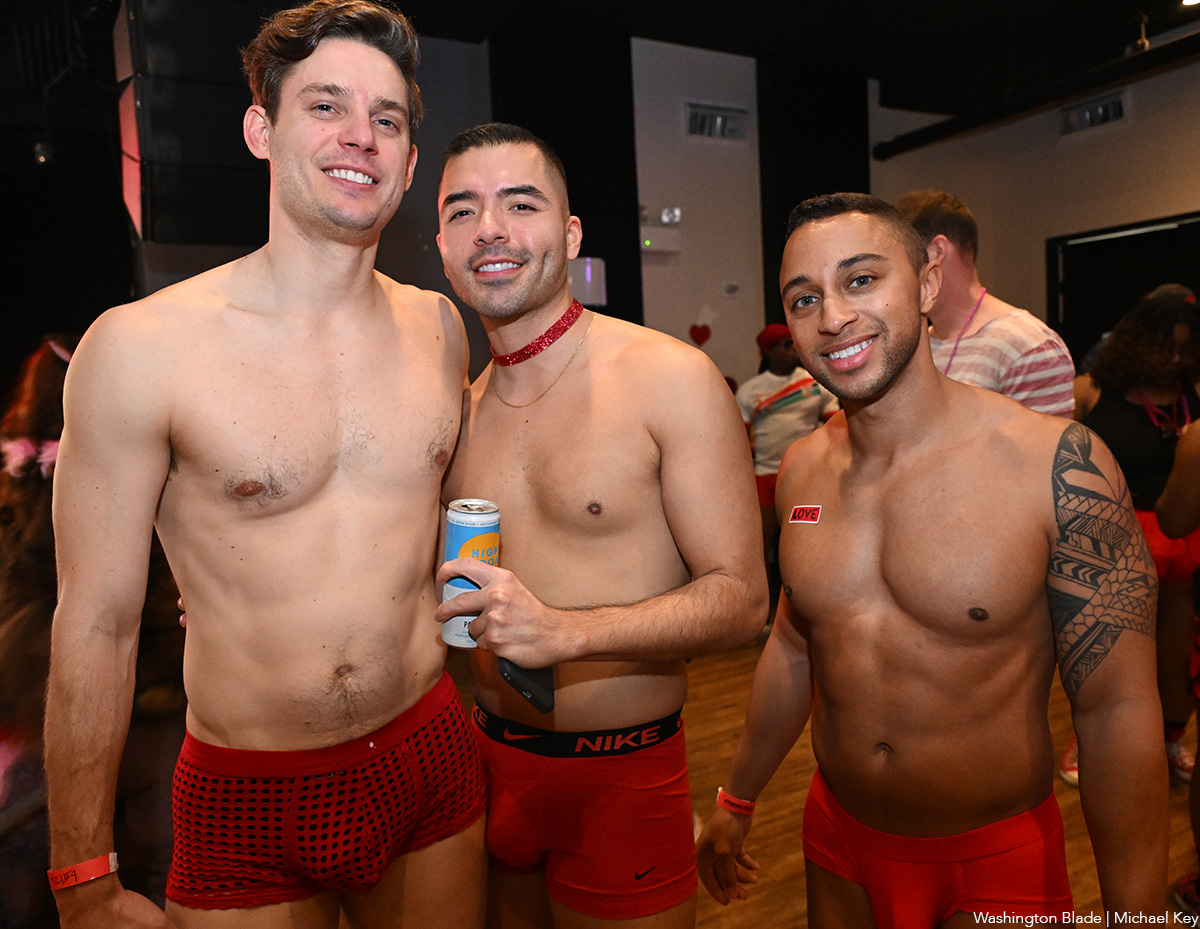
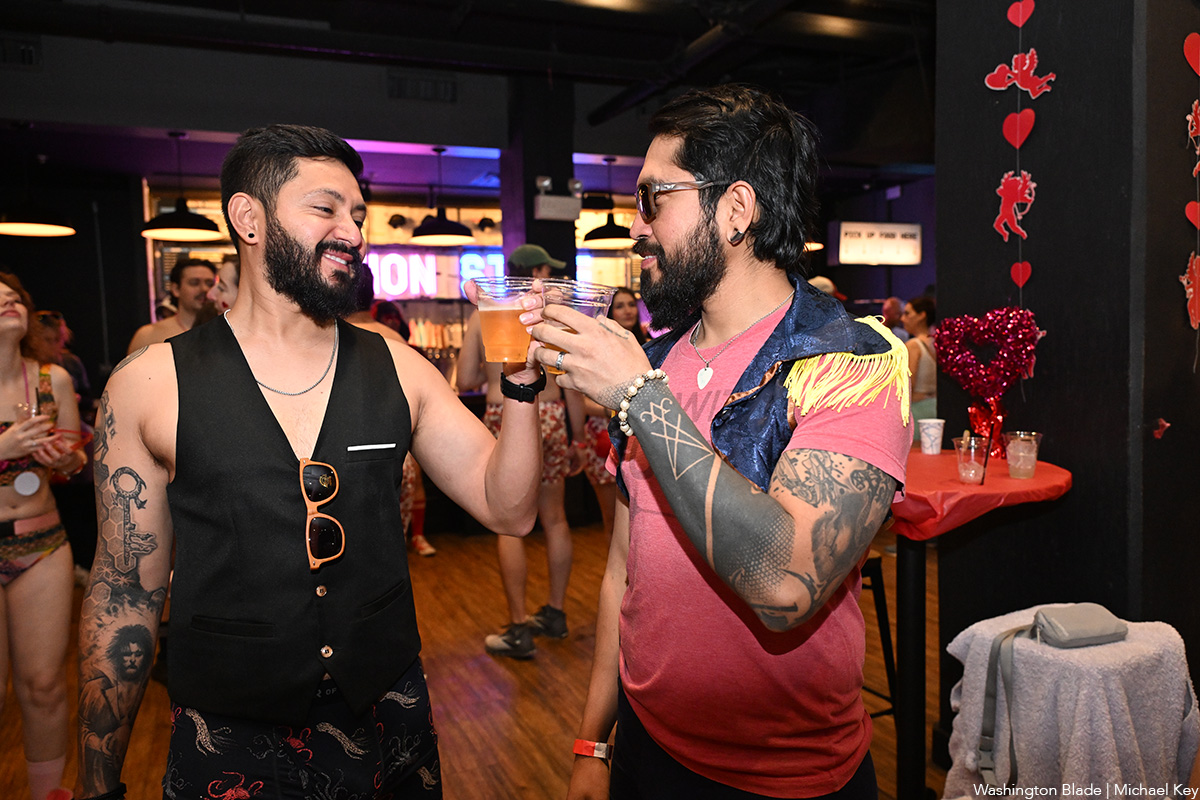
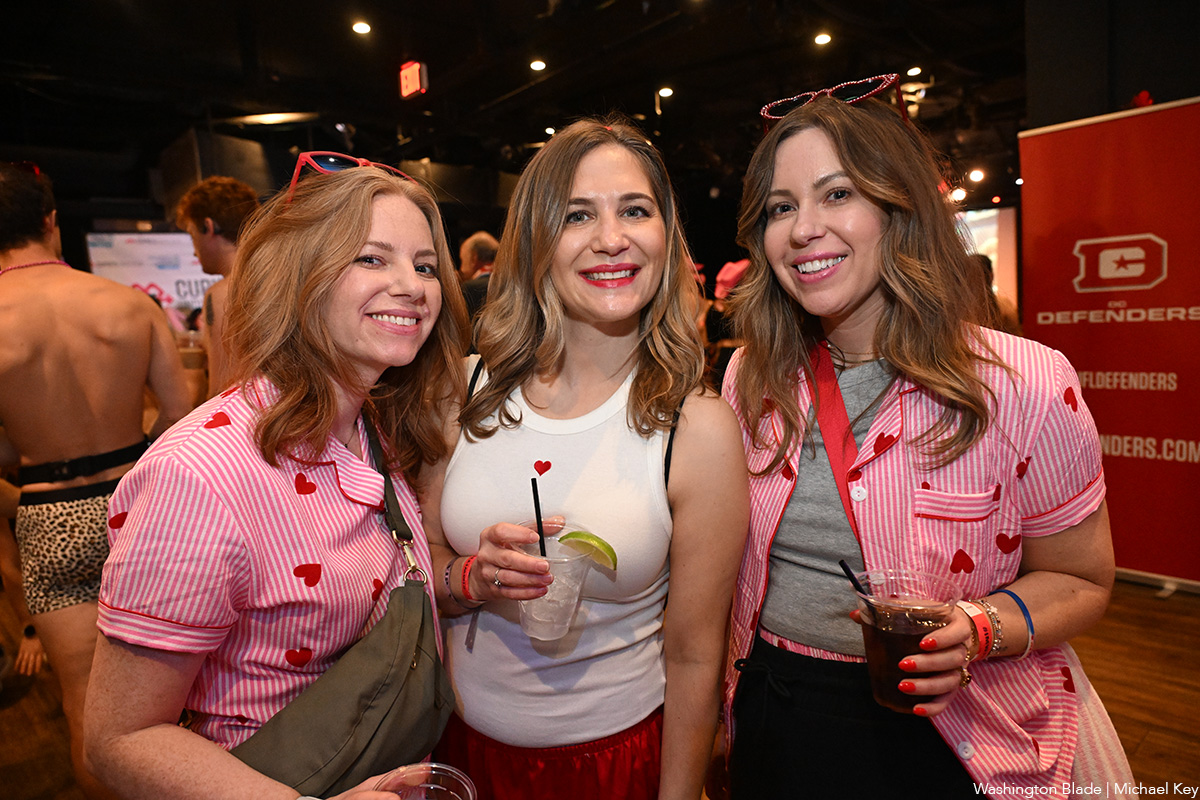
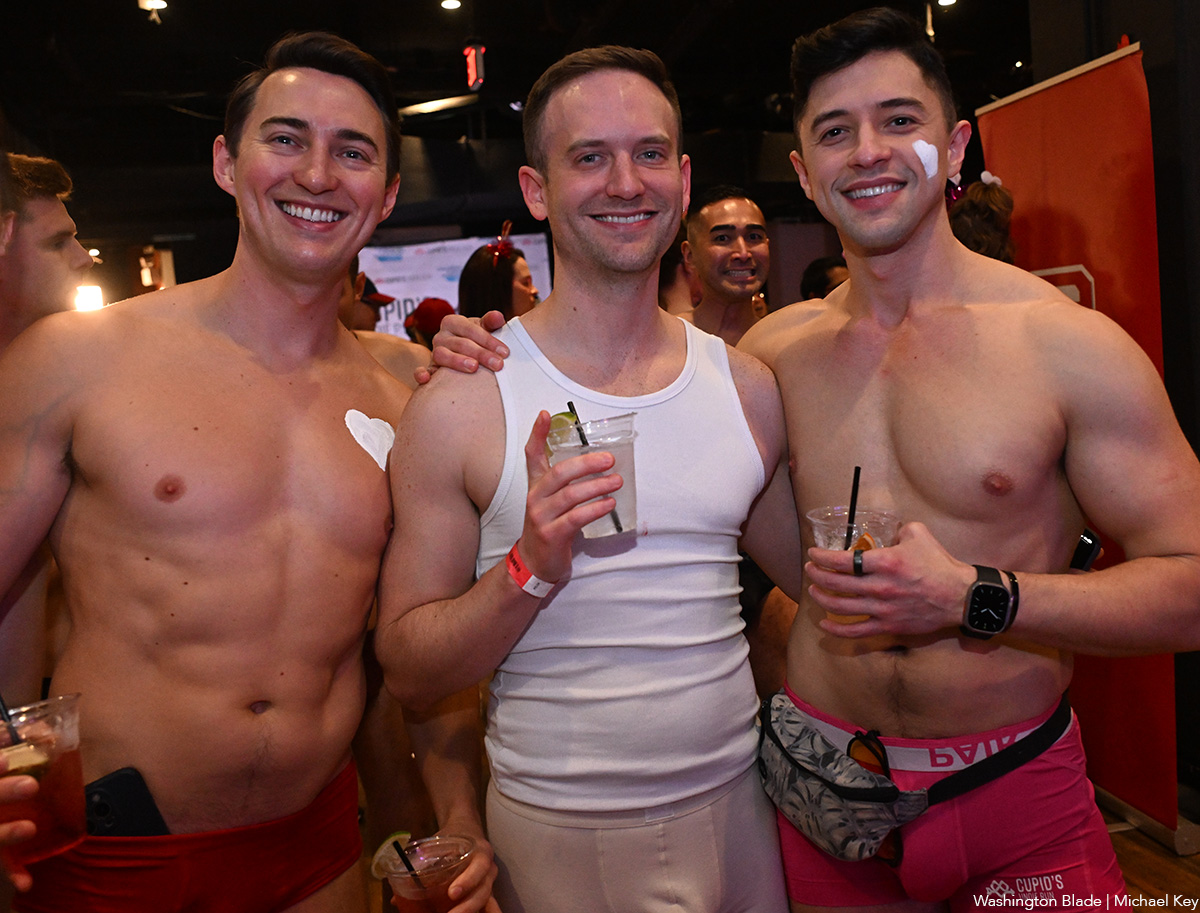
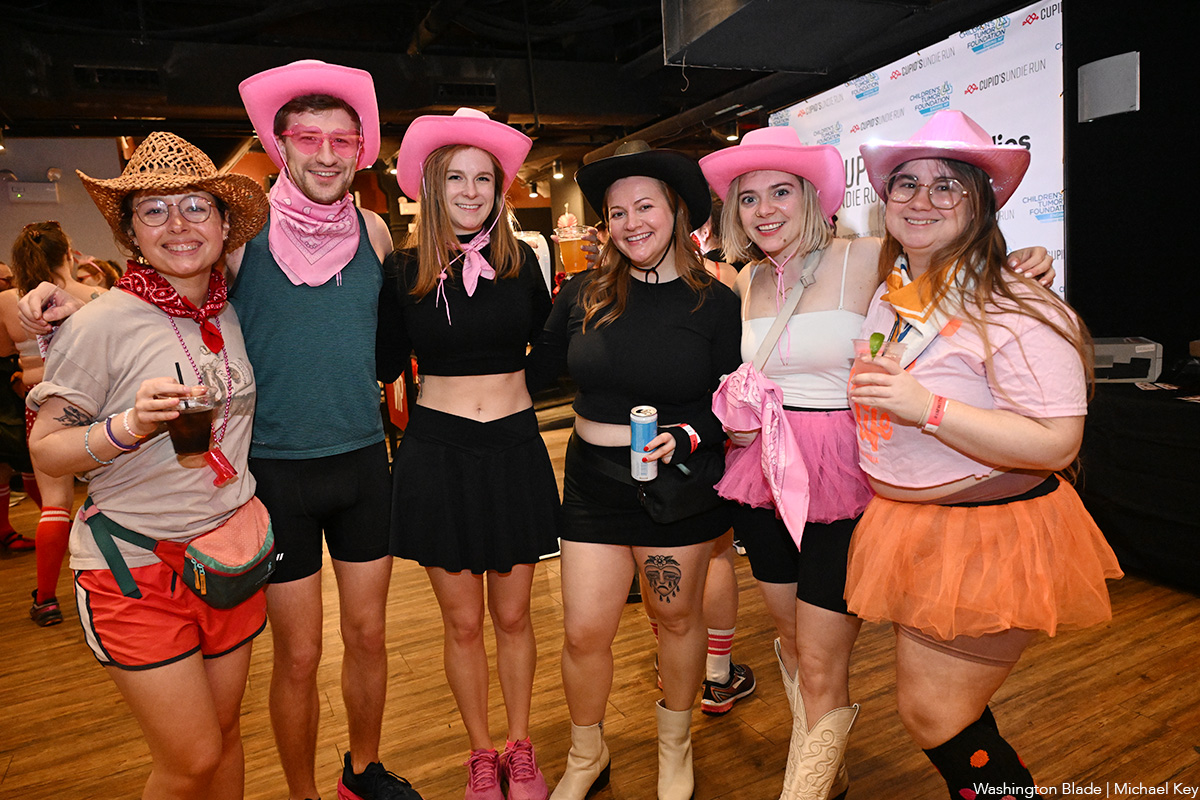
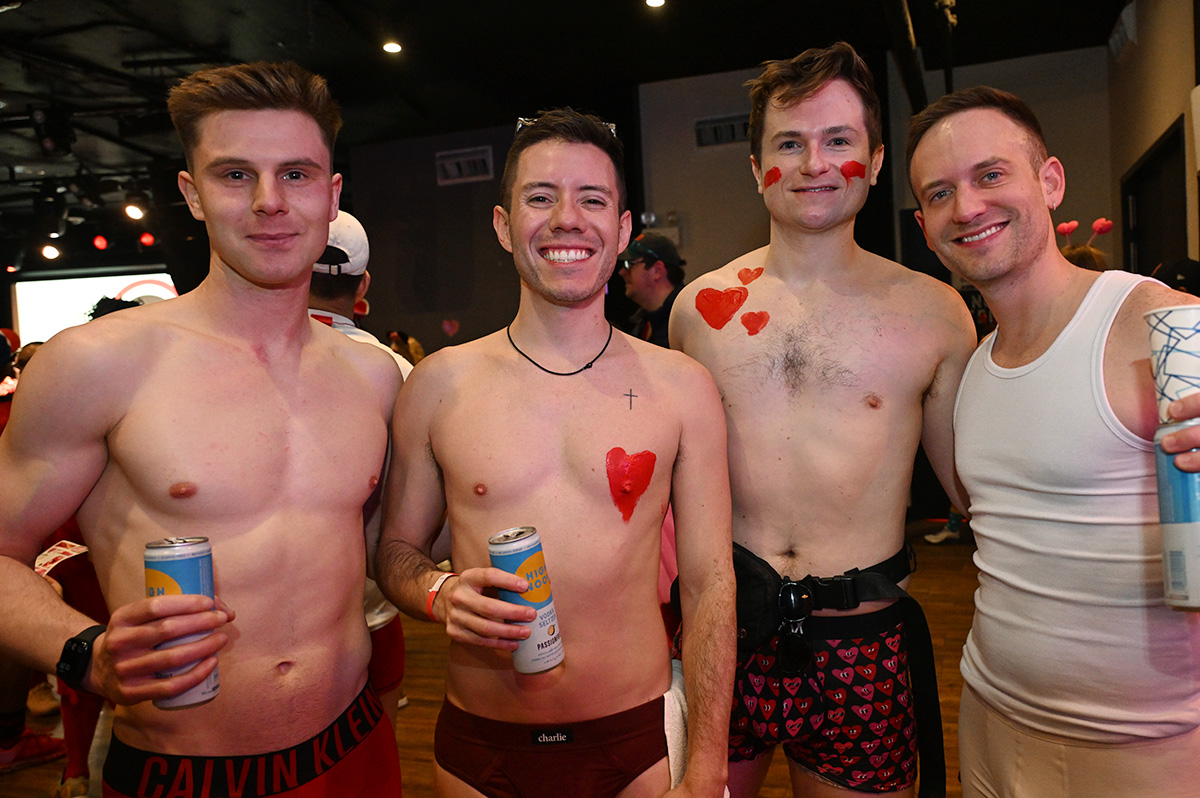
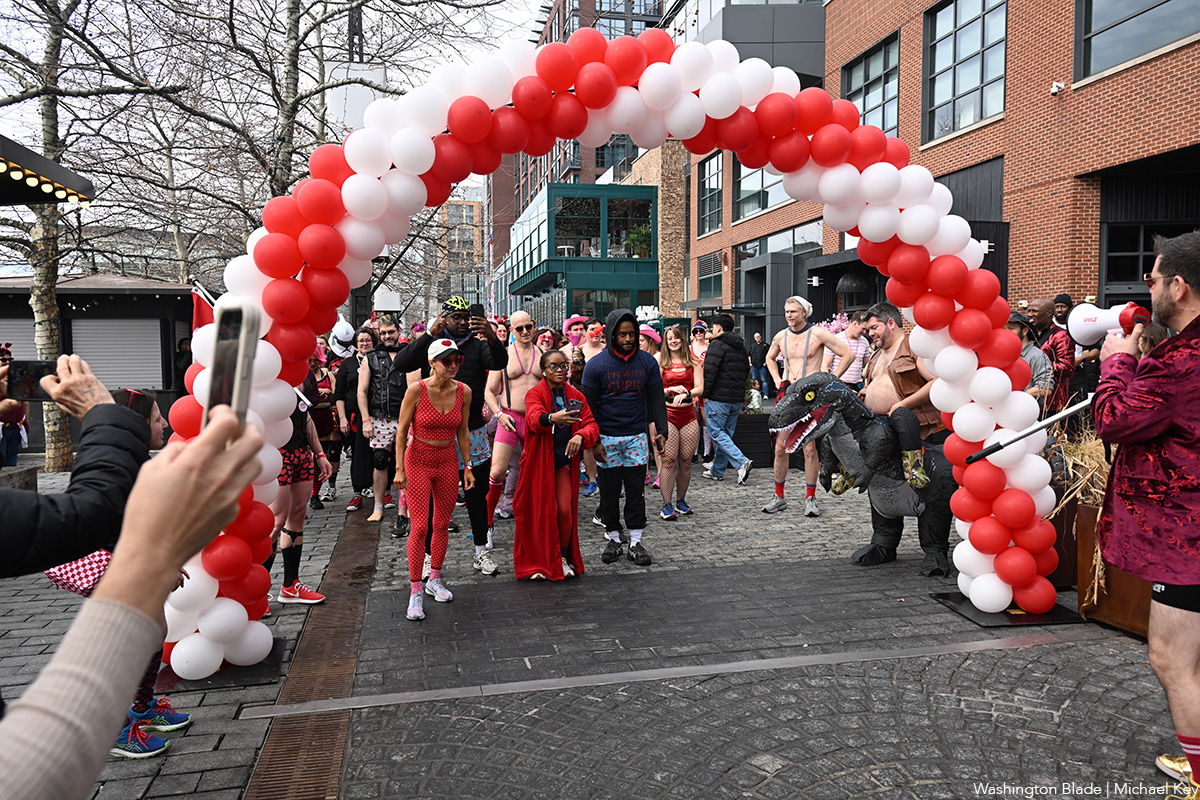
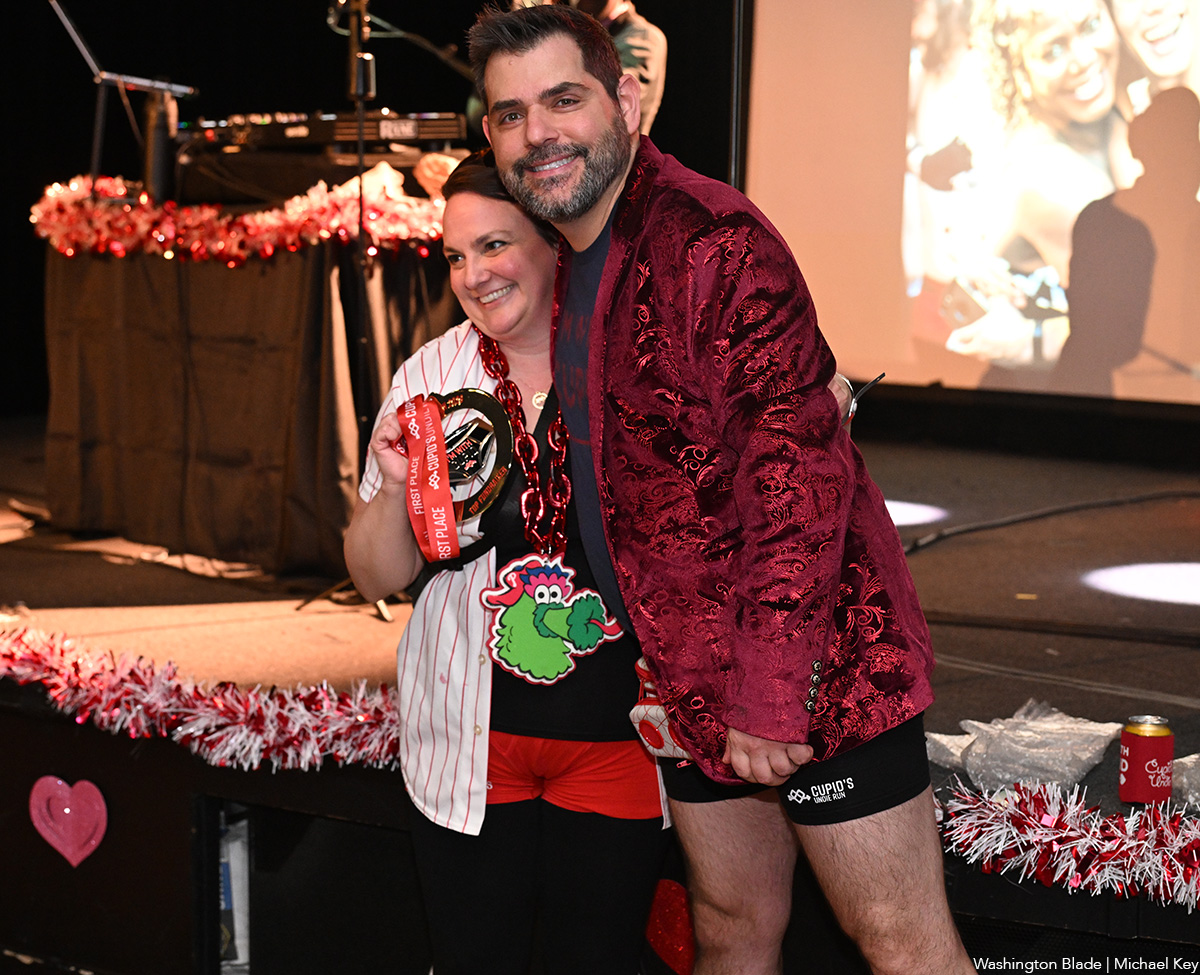
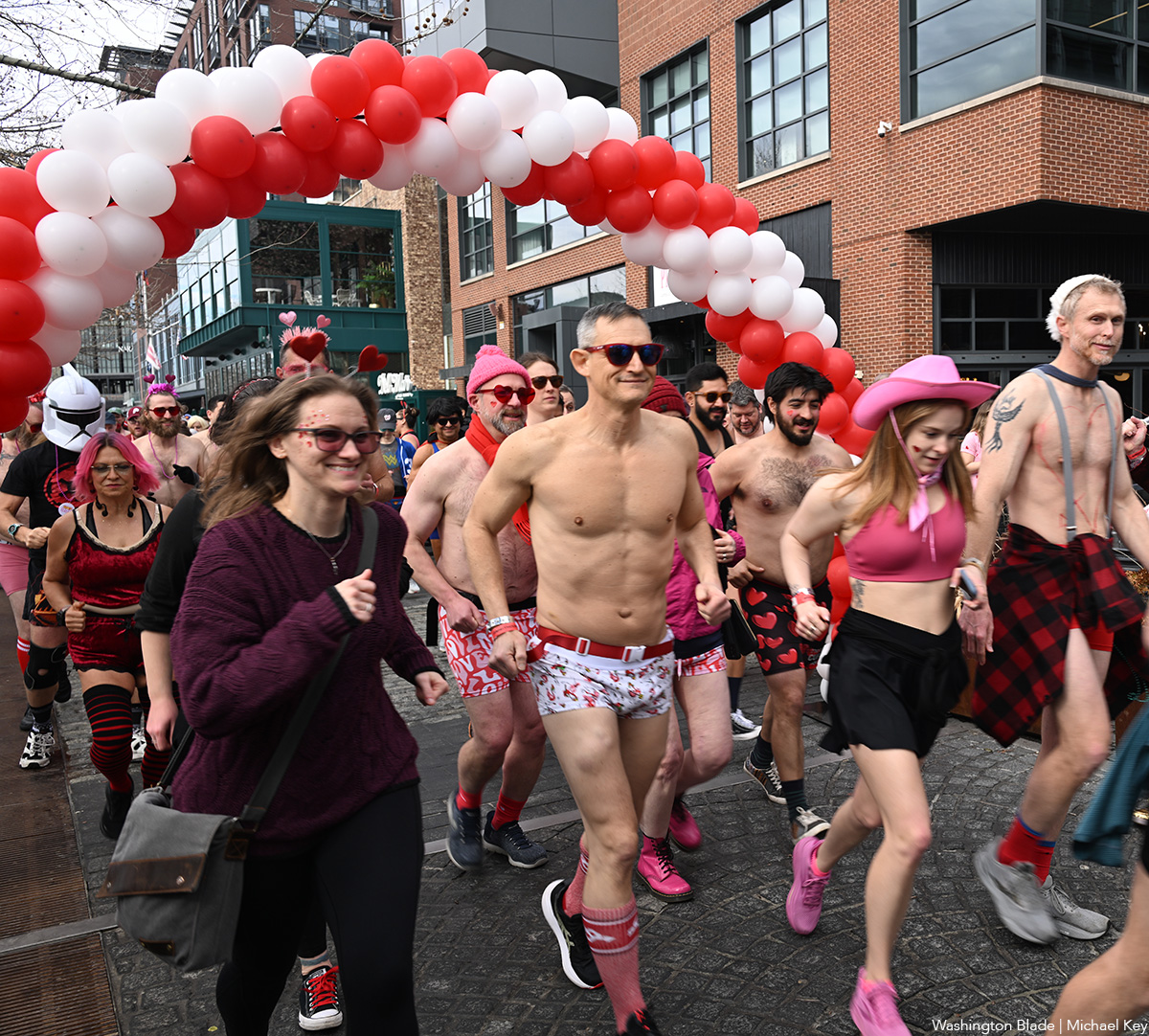
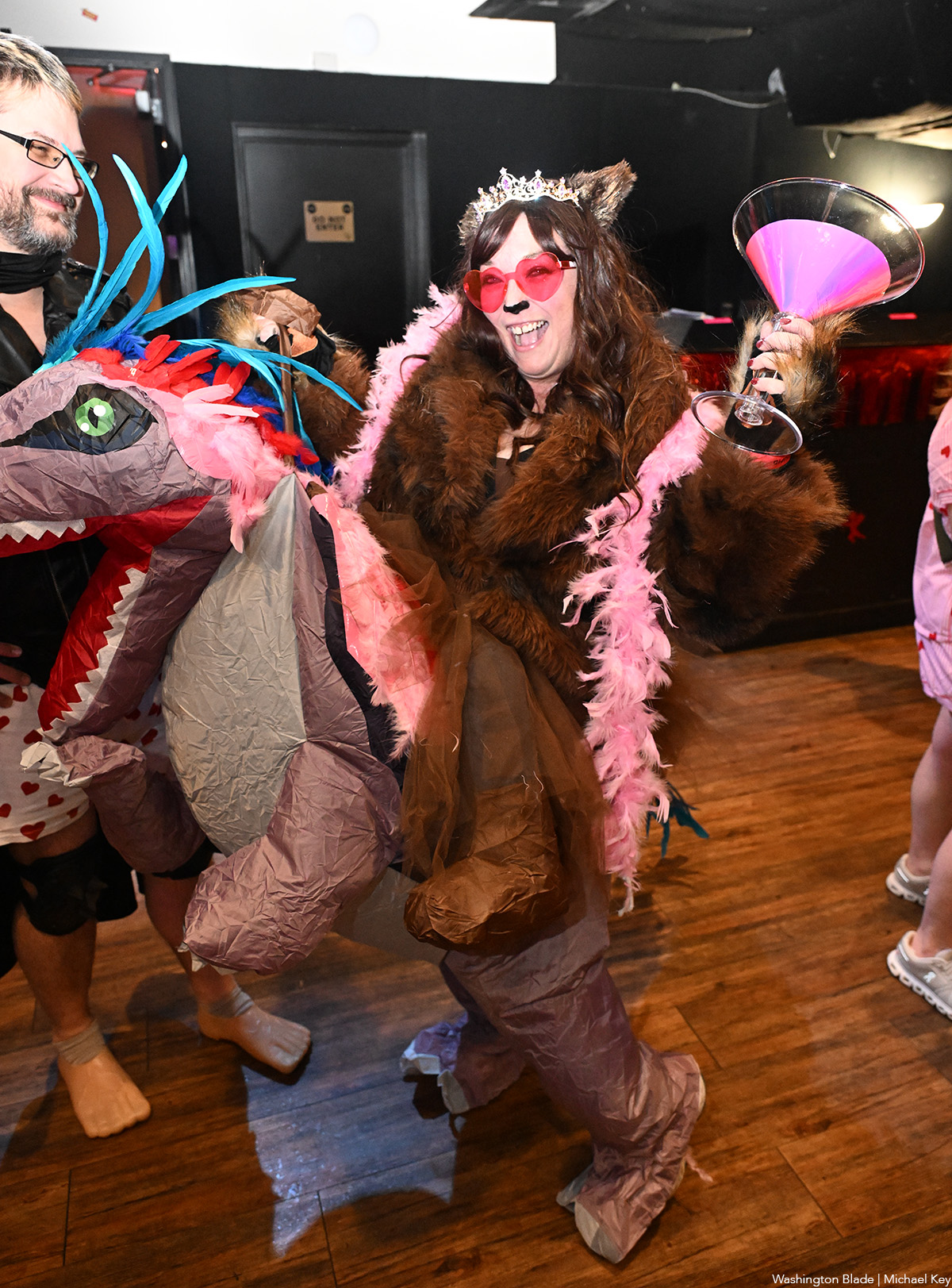
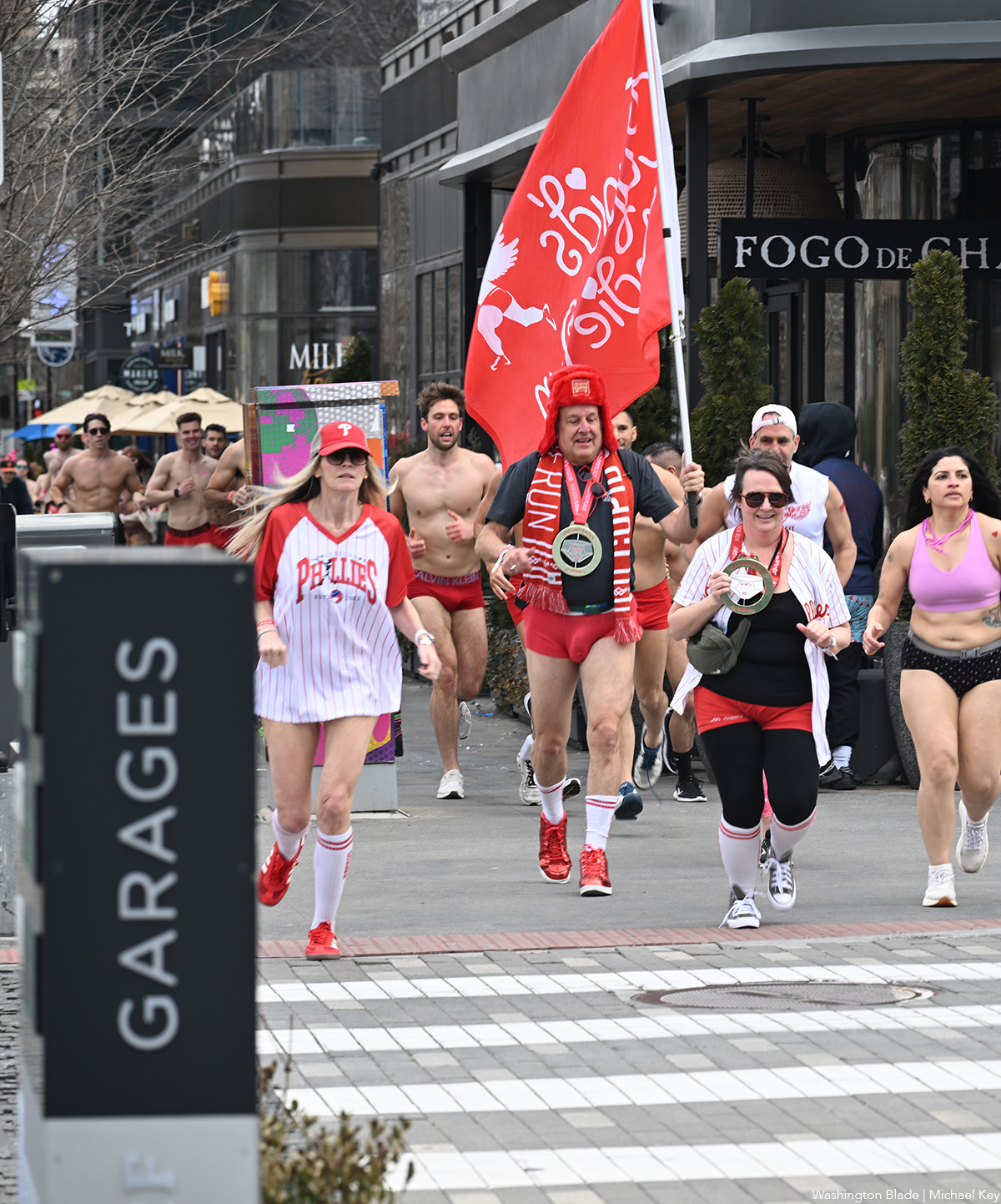
-

 Movies5 days ago
Movies5 days agoRadical reframing highlights the ‘Wuthering’ highs and lows of a classic
-

 District of Columbia4 days ago
District of Columbia4 days agoJudge rescinds order against activist in Capital Pride lawsuit
-

 District of Columbia4 days ago
District of Columbia4 days agoTrans activists arrested outside HHS headquarters in D.C.
-

 Ecuador5 days ago
Ecuador5 days agoJusticia reconoce delito de odio en caso de bullying en Instituto Nacional Mejía de Ecuador




















